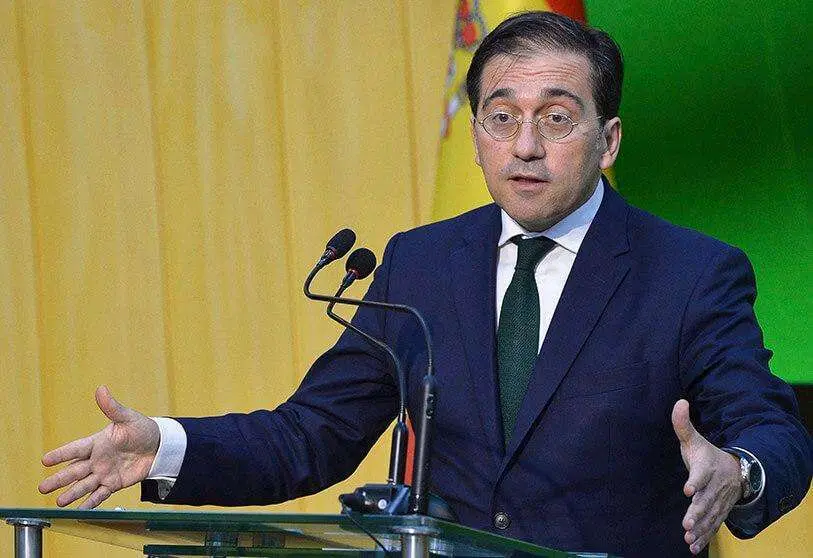Albares anuncia la reapertura de las fronteras de Ceuta y Melilla

Closed since March 2020 as a result of the Covid-19 health crisis, the borders of Ceuta and Melilla have become, over the last few weeks, a complicated issue to resolve for the governments of Spain and Morocco. Although the support of Pedro Sánchez's government for Moroccan sovereignty over Western Sahara allowed negotiations to resume, disagreements over more specific issues complicated the decision to reopen the borders.
However, now, more than two years later, pandemic and diplomatic crisis in between, the Minister of Foreign Affairs, European Union and Cooperation, José Manuel Albares, has made public "the definitive agreement for the reopening of the land borders with Ceuta and Melilla in the coming days". An announcement that comes in Marrakech, in the middle of the ministerial summit of the Global Coalition against Daesh, and after two consecutive meetings between Albares and his Moroccan counterpart, Nasser Bourita.

The two representatives met last night, and again on the morning of Wednesday 11 May, in their first meeting since the reconciliation between Madrid and Rabat following Pedro Sánchez's support for Morocco's autonomy plan in Western Sahara.
The "political decision" of the reopening was already agreed, Albares explained, but until the last "practical and operational aspects" are resolved, the Spanish Ministry of the Interior will not announce a specific date. In addition, Albares stressed that "the new stage" with the North African country "is based on mutual respect, mutual benefit and the absence of unilateral actions." "Those are concrete things."
In any case, the Spanish Foreign Minister stressed that this reopening of "crossing points and customs" will apply equally to people and goods, and that it will be carried out in an "orderly and gradual" manner. The "full normalisation of the movement of people and goods" that was included in the communiqué signed by Pedro Sánchez and Mohammed VI during the Spanish leader's visit to Rabat on 7 April is thus materialised.

Among some of the issues that sparked disagreements were customs regulations. The Spanish Foreign Ministry requested that, in addition to the resumption of the passage of travellers and goods between Morocco and the two Spanish autonomous cities, the reopening of the commercial customs office in Melilla, which was unilaterally closed by Rabat in 2018, and the creation of a similar customs office in Ceuta, should also be added.
The situation of both cities, already complex in itself - due to economic and commercial issues or their exclusion from the Schengen area - was further complicated by Spain's proposal for a 'smart border' - between Morocco and Ceuta and Melilla - equipped with facial recognition cameras. This, despite its purpose in the fight against terrorism, aroused significant misgivings. Some humanitarian and social organisations denounced the fact that it could end up violating the fundamental rights of those trying to set foot on European territory.








